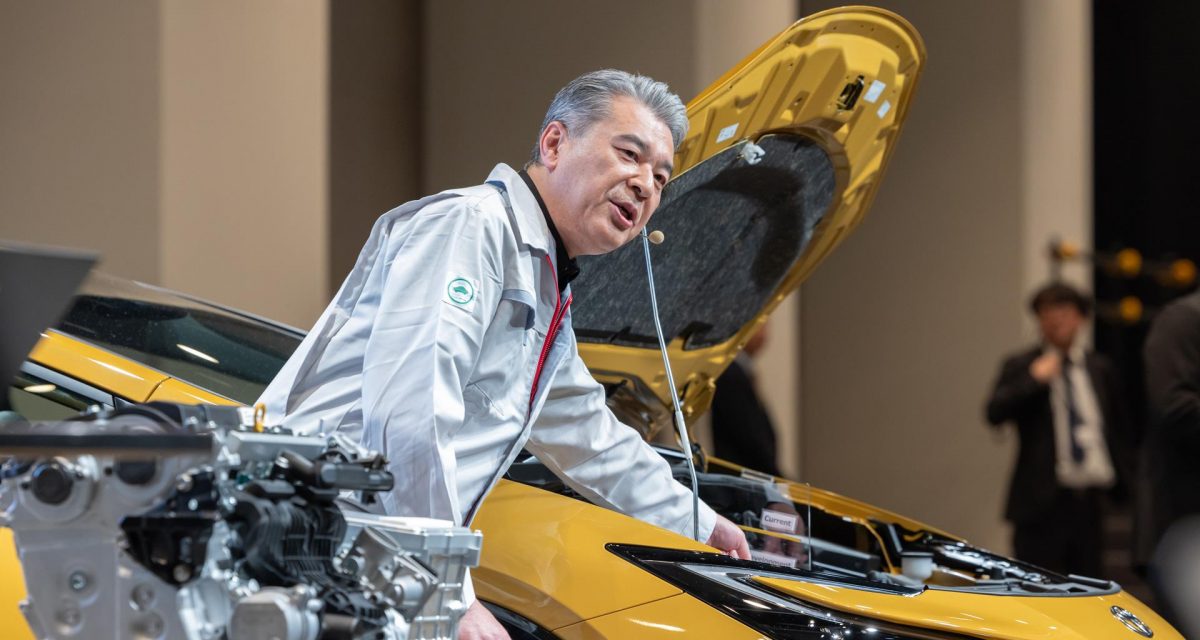Toyota, Subaru, and Mazda have announced joint collaboration on a series of new internal combustion engines (ICE) set to launch later this decade.
Here are the details on the new engine announcement from all three automakers:
- All three brands are developing EVs in parallel with new ICE-hybrid vehicles
- All engines showcased were purpose-built for hybrids and PHEVs, so continuing to build such vehicles will require new investments in ICE technology as well
- The companies have been working together on CNFs (i.e. synthetic e-fuels, bio-fuels, hydrogen and methane gaseous fuels) by entering CNF-powered cars into the Super Taikyu series
Toyota announces new 1.5L N/A, 1.5L turbo, and 2.0L turbo four-cylinder engines
The new engines use improved combustion tech and are more compact, allowing more flexible engine mounting and lets Toyota design more aerodynamic cars:
- 1.5L N/A replaces the 1.5L N/A three-cylinder. It is 10% shorter, has 10% less volume, and makes 12% better fuel economy in sedan-class vehicles.
- 1.5L turbo replaces the 2.5L N/A four-cylinder. It is 30% shorter, has 30% less volume, similar power but less thermal efficiency.
- 2.0L turbo replaces the 2.4L turbo. It is 10% shorter and has 10% less volume, while being more powerful and efficient. Can be used in trucks, heavy duty vehicles, and sports cars and is being developed in two tunes.
If you are interested in the updates presented by Mazda and Subaru, you can find them here.
What does this mean for Lexus?
Potentially quite a bit. Most surprising is that while the new T24A-FTS 2.4L turbocharged four cylinder engine is still being introduced across the Lexus lineup, it appears the engine will live an unusually short life with the new 2.0L turbocharged engine already set to replace it.
The 2.4L T4 has been the replacement for Lexus’ well-loved GR V6 found in everything from the IS sport sedan to the RX crossover. As their new generations were announced, the NX, RX, and TX already use the 2.4L T4 and it has been widely expected to replace the 3.5L V6 under the hood of the ES when that car is redesigned next year.
It also seems likely that the 1.5L N/A and turbo engines will make their way across the lineup and into vehicles like the UX, NX, IS, and possibly ES depending on markets and output.
Perhaps most importantly, if you’ve had an appetite for higher performance Lexus vehicles, your chances of seeing them come to fruition just got higher. The press materials note that the new 2.0L turbo engine is being developed in two flavors: One with roughly 400 horsepower, and another with approximately 600 horsepower for high performance applications.
Considering that Toyota’s announcement referenced hybrid and plug-in hybrid powertrains that will use these new engines, it is unclear if the quoted horsepower numbers are total system horsepower, or power produced by the internal combustion engine itself. Either way, thinking about future Lexus products in the realm of 400 or 500 horsepower certainly has us excited.
Production of these new engines is expected to start around 2027, and the applications could span passenger cars, coupes, utility vehicles, and trucks.


